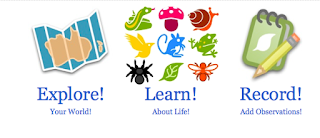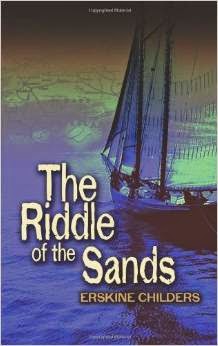Citizen science and sailing
Getting involved in scientific research is a real game changer for many cruisers. Like Alex and me, many people get out there and then find they need more than just floating around from place to place. They need a purpose. As budgets for research in Universities and government agencies get cut, supporting research projects through participation in citizen science is a real boon. Many cruisers end up in remote places where it would be hard to justify sending a research vessel. Having someone already there who can take some measurements or observations and report back via an app when signal is available is making a difference to the collective knowledge base about the earth and oceans.
But finding citizen science projects that are trustworthy, can produce reproducible and verifiable results, projects in which the research will be effectively applied, is not the easiest. Vetting the projects is important. That's where the OCC comes in. The Ocean Cruising Club has taken on the task of vetting the projects on behalf of our members. We have identified several that are worthwhile ventures. And we've discounted several that might have been a waste of time, effort and resources.
One of the best projects for cruisers to take part in, and perhaps especially for families, is the Birding Aboard project started by Diana Doyle. Working in cooperation with the Cornell Lab of Ornithology, Diana created the resources and instructions that cruisers need to submit data on sightings of pelagic birds to their scientific database. Its a win win for everyone. She set up a Facebook page for novices to post their pictures for verification of identification, so people don't even need to know the birds themselves. Submit the sighting and the location and scientists or bird experts will verify what you saw. Simple and effective. Cruisers have been instrumental in identifying changes in migration patterns in response to climate change and identification of pelagic birds in regions where they'd never been reported before. Birds thought to be extinct have been spotted. It's fun, it's easy, you contribute to the body of scientific knowledge and you learn new stuff along the way.
Another very effective project that cruisers can contribute to is the Secchi Disk study. The Ocean Cruising Club was among the first supporters of the study. This one is particularly rewarding because they have already published a scientific paper based on the initial data collected. Cruisers were listed as co-authors of the study, their affiliation cleverly noted as the world's oceans. Dr. Richard Kirby, known as the Plankton Pundit, initiated the study and has been managing the data collection and analysis. Phytoplankton, which make up the beginning of the marine food chain, are experiencing dramatic shifts due to climate change. Sailors and fishermen are helping to measure the extent of change by lowering a homemade white disk into the water and noting the depth at which it disappears. They report the results with a simple app when they reach an area where they have mobile signal. It's simple and effective.
Soon I'll have several more to share with you. Stay tuned.
But finding citizen science projects that are trustworthy, can produce reproducible and verifiable results, projects in which the research will be effectively applied, is not the easiest. Vetting the projects is important. That's where the OCC comes in. The Ocean Cruising Club has taken on the task of vetting the projects on behalf of our members. We have identified several that are worthwhile ventures. And we've discounted several that might have been a waste of time, effort and resources.
One of the best projects for cruisers to take part in, and perhaps especially for families, is the Birding Aboard project started by Diana Doyle. Working in cooperation with the Cornell Lab of Ornithology, Diana created the resources and instructions that cruisers need to submit data on sightings of pelagic birds to their scientific database. Its a win win for everyone. She set up a Facebook page for novices to post their pictures for verification of identification, so people don't even need to know the birds themselves. Submit the sighting and the location and scientists or bird experts will verify what you saw. Simple and effective. Cruisers have been instrumental in identifying changes in migration patterns in response to climate change and identification of pelagic birds in regions where they'd never been reported before. Birds thought to be extinct have been spotted. It's fun, it's easy, you contribute to the body of scientific knowledge and you learn new stuff along the way.
Another very effective project that cruisers can contribute to is the Secchi Disk study. The Ocean Cruising Club was among the first supporters of the study. This one is particularly rewarding because they have already published a scientific paper based on the initial data collected. Cruisers were listed as co-authors of the study, their affiliation cleverly noted as the world's oceans. Dr. Richard Kirby, known as the Plankton Pundit, initiated the study and has been managing the data collection and analysis. Phytoplankton, which make up the beginning of the marine food chain, are experiencing dramatic shifts due to climate change. Sailors and fishermen are helping to measure the extent of change by lowering a homemade white disk into the water and noting the depth at which it disappears. They report the results with a simple app when they reach an area where they have mobile signal. It's simple and effective.
Soon I'll have several more to share with you. Stay tuned.






Comments
Post a Comment